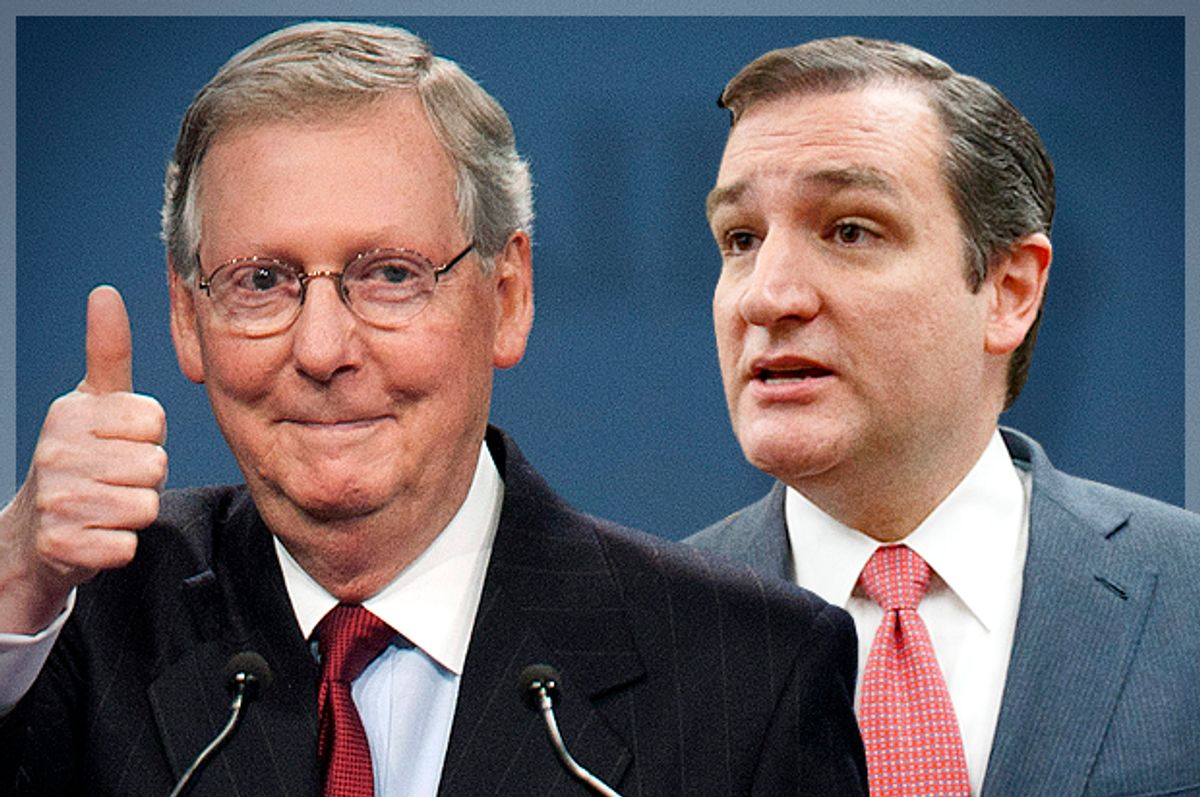It’s no great insight to point out that the Republican Party is struggling to come up with a workable healthcare reform policy. They’ve had over half a decade now to draft legislation to replace the Affordable Care Act, and several false starts and broken promises later, they’ve made next to no progress. What the party has mastered, however, is repealing all or part of the ACA. They’ve managed to do it 56 some-odd times since 2010. The law, of course, remains firmly in place, but that’s not to say those votes have been completely meaningless – there is some psychological benefit to catharsis.
The latest repeal vote sailed through the Republican-controlled House of Representatives yesterday and now will go to the Senate. The stated reason for this latest repeal vote was to give the newly elected Republican members in both houses of Congress the chances to officially vote against the ACA, as they promised they would on the campaign trail. The bill also contains a fun little provision that gives us some idea of what House Republicans expect to accomplish with their forever-pending healthcare legislation: they want a bill that does everything, costs nothing, and pays no homage to reality as we collectively perceive it.
H.R. 596, which provides for the immediate repeal of the ACA, also instructs the chairs of the relevant House committees to come up with legislation that satisfies a number of conditions. The chairs must come up with provisions that:
(1) foster economic growth and private sector job creation by eliminating job-killing policies and regulations;
(2) lower health care premiums through increased competition and choice;
(3) preserve a patient’s ability to keep his or her health plan if he or she likes it;
(4) provide people with pre-existing conditions access to affordable health coverage;
(5) reform the medical liability system to reduce unnecessary and wasteful health care spending;
(6) increase the number of insured Americans;
(7) protect the doctor-patient relationship;
(8) provide the States greater flexibility to administer Medicaid programs;
(9) expand incentives to encourage personal responsibility for health care coverage and costs;
(10) prohibit taxpayer funding of abortions and provide conscience protections for health care providers;
(11) eliminate duplicative government programs and wasteful spending; or
(12) do not accelerate the insolvency of entitlement programs or increase the tax burden on Americans.
Well… points for ambition! Republicans hate mandates – employer mandates, coverage mandates for insurers, mandates for individuals to buy insurance. They fall under the “job-killing policies and regulations” that are ruled out in condition 1. So that means they intend to expand coverage (condition 6) and provide access to coverage for people with preexisting conditions (condition 4) without the use of mandates and without regulating the insurance market.
Fair enough, but that means substantial financial incentives (subsidies) for healthy individuals to buy insurance on the open market. And it means still more money to heavily subsidize coverage options for otherwise uninsurable people, who'll once again find themselves subject to insurance company discrimination. If one were to be absurdly generous and suppose that conservatives in Congress would sign off on something this expensive, it would still have to be paid for. How? Well, certainly not with any new tax revenues, which are ruled out in condition 12. If there’s an explanation for how all this works that isn’t “eh, the free market will take care of everything,” I’d be interested to hear it.
Amusingly, Republicans are boasting that this vague, self-contradictory wish list that implodes upon itself is actually their strongest effort to date on healthcare reform. Meanwhile, three House Republicans actually voted against the repeal bill yesterday, arguing that it didn’t seriously address Republican promises to develop legislation to replace the Affordable Care Act. It’s hard to disagree with them.

Shares